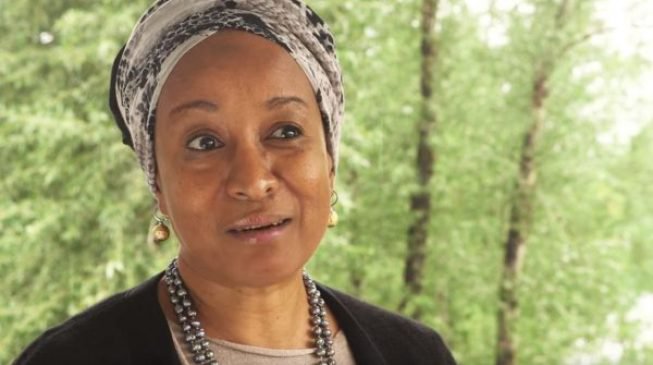The Senate Committee on Appropriation on Thursday queried the usage of the social intervention fund in the national budget for the past three years.
Lawmakers said N500 billion was approved annually for the implementation of the programme annually, totalling N1.5 trillion.
Members of the committee, led by Senator Danjuma Goje, during the budget defence of the agency, lamented that they were not carried along in the implementation of the Social Investment Programmes in their various senatorial districts.
In his opening address, Goje said he has not been able to identify a boy or girl that has benefited in this intervention programme as a leader of All Progressives Congress in Gombe State.
According to him: “As a leader of the APC in Gombe State, I am yet to identify a boy or girl that has benefited in the intervention programme in the state.”
Other senators who spoke during the budget defence challenged the Special Adviser to the President on SIP, Maryam Uwais, to submit details of beneficiaries of the social intervention fund across the country.
Presenting the budget for consideration, Uwais explained that although N500 billion was normally approved annually for the implementation of the programme since it commenced, it has never been released fully.
She told the lawmakers that out of N500 billion appropriated for the SIP annually, N100 billion was allocated for Social Housing Scheme under the Federal Ministry of Finance.
Uwais said out of the remaining N400 billion, only N90 billion was released to the agency, out of which N89.8 billion has been spent.
She told the lawmakers that 7,487,441 pupils are being fed daily in 22 states by 75,333 cooks in 33,981 primary schools.
She said: “You may kindly recall that a sum of N500 billion was appropriated for the NSIP budget in 2017, out of which N100 billion was allocated for the Social Housing Scheme under the Federal Ministry of Finance.
“Further more, out of the balance N400 billion, only N90 billion was released to the NSIP for the year 2017.”
Uwais also said that the programme received the sum of N85 billion in 2016.
she added: “Unfortunately, N100 billion is deducted at source for Housing Scheme by the Federal Ministry of Finance.”
However, Goje was unsparingly critical of the programme, saying it was gradually going the way of the disbanded Subsidy Reinvestment and Empowerment Programme of the Goodluck Jonathan administration.
He said the Senate would not hesitate to drastically reduce the yearly allocation of N500 billion to NSIP if its performance did not improve.
Goje, who stressed the importance of the programme, noted that by the end of three years, the NSIP would have handled N1.5 trillion, which, according to him, is unprecedented.
He said: “Many people are complaining that they have not seen the impact of the programme considering the magnitude of the fund involved.
“I am from Gombe State, I represent Gombe Central.
“I am yet to see one single boy who came to tell me that he has benefited from your N500 billion.
“Many other Nigerians are saying the same thing.
“N500 billion for 36 states is about N13 billion.
“If you spend N13 billion in one year in Gombe State, there is no way I would not have known, other people will also know.
“If you spend N500 billion in one year in Nigeria, Nigerians will know.
“No single All Progressives Congress person from Gombe State has benefited from your School Feeding Programme.
“No single person from Gombe State has benefited from your N-Power.
“We don’t know about your N-Power.
“As far as many of us are concerned, we are completely dissatisfied with what you are doing.”
Goje also said that there was no indication to show that N100 billion is deducted from source for Social Housing Scheme by the Ministry of Finance.
The Social Investment Programme already has 200,000 Nigerian graduates from all over the country under its N-Power Programme, with each person receiving a stipend of N30,000 a month.
An additional 300,000 graduates have been shortlisted for the next phase of the programme, according to the Media office of Vice President Yemi Osinbajo.
Out of the enumerated 439,859 poor and vulnerable households in 23 states under the National Social Safety Net Programme, 297,973 are already benefiting from the cash transfer programme.
In addition, 6,044,625 pupils in 33,981 primary schools in 20 states are being fed under the Home-Grown School Feeding Programme by 61,352 cooks employed by the scheme.
Under the Social Investment Programme, 259,451 loans were issued through the Government Enterprise and Empowerment Programme across 36 states and FCT, out of the 478,388 eligible beneficiaries whose applications were processed.


